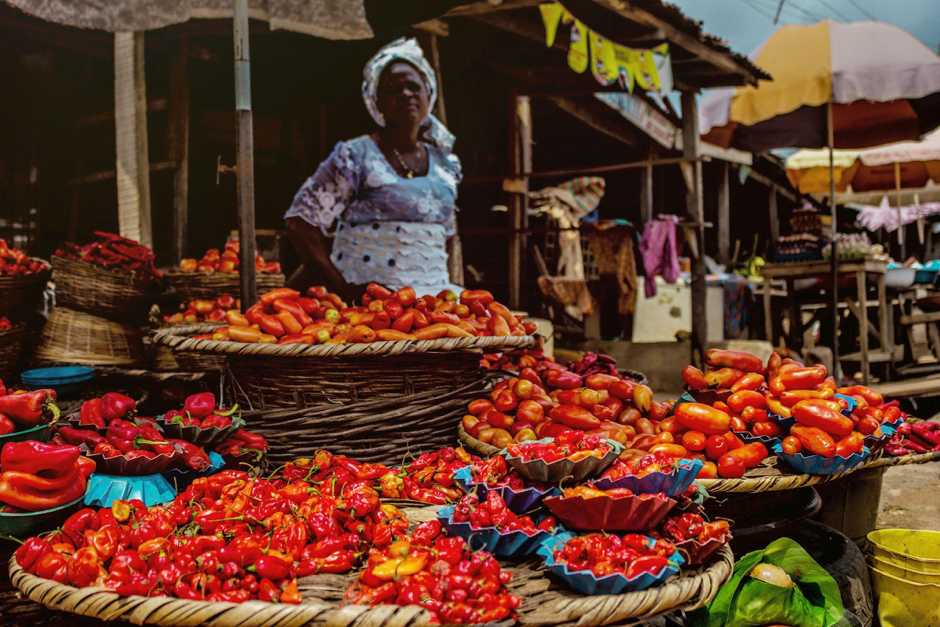News
Food crisis: 26.5m Nigerians may go hungry in 2024

Cadre Harmonise (CH) has issued a warning that approximately 26.5 million individuals across 26 Nigerian states will experience a food crisis between June and August 2024.
The findings were presented in the November Analysis Result Presentation, which was organized by the Kwara Ministry of Agriculture and Human Development in partnership with CH and other organizations.
The report highlights that the affected population includes Internally Displaced Persons in Zamfara, Sokoto, and Borno States.
During the meeting, Isiaq Oloruko-oba, the Parmenent Secretary of the Ministry, emphasized the importance of planning ahead and finding lasting solutions to address the food and nutrition security challenges facing the country.
The meeting provided an opportunity for critical stakeholders to discuss the way forward, and the state government reiterated its commitment to empowering farmers and providing necessary aid to ensure food security in the state.
In addition, Olusoji Oyawoye, the state CH Coordinator, also mentioned that Kwara has a population of approximately 3.73 million according to the 2001 population projections.
He emphasized that agriculture plays a vital role in the livelihood of the majority of the population, particularly through traditional farming practices.
“The main crops cultivated in the region include rice, cassava, yam, soya beans, maize, beniseed, guinea corn, groundnut, and cowpea. Additionally, there are tree crops such as cashew nuts and palm oil,” he explained.
Furthermore, Mr. Oyawoye highlighted the exploitation of valuable resources like hardwood timber, shea nuts, and locust bean from the forests.
He also pointed out that the increase in inflation can be attributed to various factors, including disruptions in agricultural activities due to higher costs of farm inputs and security concerns.
Moreover, he mentioned that exchange rate devaluation, higher electricity tariffs, and increased fuel prices have led to a rise in transportation costs, contributing to inflation.
According to him, the food inflation rate in September 2023 was 30.64 percent compared to the previous year, marking a significant increase of 7.30 percent points from September 2022 (23.34 percent).
The expert mentioned that the main factors contributing to food and nutrition insecurity in Kwara are high fuel prices, high food prices, expensive farm inputs, and inflation affecting consumer goods. These challenges have had a significant impact on livelihoods, transportation, agriculture, and the overall economy.
It is concerning that despite having an abundance of food in Kwara, a significant portion is being exported instead of being utilized within the state. The resource person emphasized the importance of keeping agricultural produce, especially food crops, within Kwara to ensure food security.
To address these issues, farmers should be encouraged to prioritize food crops over cash crops. Additionally, there is a need to focus on processing large yields of food to prevent wastage. The resource person appealed to the state government to promote year-round farming and integrate it into the system.
During the presentation, Dr. Habeeb Lawal, the state Coordinator of the Accelerating Nutrition Results in Nigeria (ARIN) project, highlighted the connection between nutrition and food security. He stressed the need for consistent action to ensure food security, particularly for vulnerable groups such as children, the elderly, and pregnant women.
Dr. Lawal also expressed concern about the prevalence of stunted growth among children in the country. To increase the availability of food crops throughout the year, stakeholders at the meeting recommended the promotion of dry season farming and irrigation across the state.
Furthermore, they suggested the establishment of food crop markets to facilitate easier access to these crops from various cultivation areas within the state.






